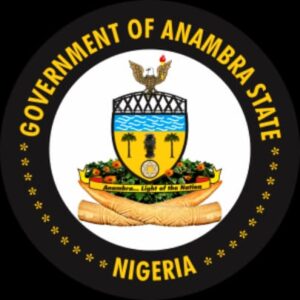
By Romanus Udekwe Okue-Agbomma
The Anambra State Government has dismissed the report of the 2025 Philips Consulting Limited State Performance Index, describing it as “methodologically amateurish” and questioning whether the consulting firm’s low ranking of the state represents “mischief or blindness.”
In a detailed response authored by Press Secretary to the Governor, Mr. Christian Aburime, the state government, challenged PCL’s methodology, which ranked Anambra 34th overall despite placing 8th in the previous year’s assessment. The dramatic decline in ranking has prompted accusations of flawed data collection and analysis techniques.
“This report, which falsely ranks Anambra State near the bottom in critical areas like education (33rd), healthcare (30th), and capital expenditure per capita (33rd), has become fodder for opportunistic critics,” Aburime stated in his analysis, questioning the firm’s expertise in state performance evaluation.
The government’s primary concern centres on PCL’s sample size methodology, which utilised only 78 respondents for Anambra’s population of over 6 million residents. According to the state’s analysis, Cochran’s formula requires a minimum of 385 respondents for a 5% margin of error, making PCL’s sample size inadequate for credible statistical conclusions.
Furthermore, the state highlighted significant demographic bias in the survey, noting that 76% of respondents were male with no apparent stratification by age, income, or geography. “This is not research; it is a skewed snapshot, likely drawn from urban elites in Lagos or Abuja, far removed from Anambra’s rural heartlands,” the government statement declared.
In defending the state’s education sector performance, Aburime cited concrete achievements that contradict PCL’s ranking. The government implemented free education from nursery to JSS3 since September 2023, extending to SS3 in 2024 across all public schools, resulting in a 27.05% surge in primary enrolments and 10.36% increase in secondary education participation.
The state also highlighted its recruitment of 8,115 teachers in Governor Soludo’s first two years in office, describing this as unmatched by any other state. International recognition has followed, with Anambra students winning the 2023 International Debate Championship in Malaysia and Christ the King College, Onitsha, securing gold in the 2024 World Affairs Challenge – Nigeria’s first victory in 32 years.
Regarding healthcare, the government referenced the 2024 National Primary Healthcare Leadership Challenge, where UNICEF, the Dangote Group, Nigeria Governors’ Forum, and the Gates Foundation crowned Anambra number one in the Southeast and nationwide. This recognition came after on-site assessments by a 15-member international team across all states, resulting in a $1.2 million award.
The state’s free antenatal and delivery services in public hospitals have benefited over 120,000 women in two years, whilst public hospital patronage has increased from 25% in 2022 to 73% currently, according to government statistics.
Infrastructure development formed another pillar of the state’s defence, with 842.2 kilometres of roads awarded over three years and 546.3 kilometres completed, including eight bridges, flyovers, and over 150 kilometres of dualisation projects. These achievements have earned multiple awards for transformative delivery, the government claimed.
The state acknowledged that PCL did recognise certain strengths, placing Anambra 7th in ease of doing business and 8th in debt management and internally generated revenue. However, officials argued that these positive indicators were overshadowed by what they termed “social indictments” in the overall assessment.
Independent validation of fiscal performance was cited through BudgIT’s 2024 Fiscal Performance Ranking, which placed Anambra 3rd nationwide, with top honours in the Q1 2025 State Fiscal Transparency League for digital accountability, e-procurement, and timely data publication.
The government’s criticism extended to PCL’s transition from human resources consulting to state performance rankings, questioning the firm’s expertise in statistical analysis and field validation required for credible institutional assessment. “Philips Consulting, historically a specialist in human resources, has now pivoted to state performance rankings, a field demanding statistical rigour, field validation, and impartiality,” the statement observed.
The response also contrasted PCL’s methodology with international bodies like UNESCO, UNICEF, and the Gates Foundation, which “deploy teams for rigorous fieldwork” and have ranked Anambra favourably in various assessments.
Addressing critics who cite the PCL report as evidence of policy failure, Aburime argued that the state’s achievements represent “the fruits of an administration prioritising quality over quantity, outcomes over optics.” The government positioned Governor Soludo’s approach as ‘Doing More with Less,’ emphasising efficiency in resource utilisation.
The controversy highlights broader concerns about the proliferation of rating agencies in Nigeria and questions surrounding methodological standards in institutional assessment. The state government’s detailed rebuttal suggests growing tensions between public institutions and private consulting firms conducting performance evaluations.
PCL’s dramatic revision of Anambra’s ranking from 8th to 34th in consecutive years has raised questions about consistency in evaluation criteria and methodology. Such volatility in annual rankings typically prompts analysts to verify findings through additional research and validation processes.
The dispute underscores the importance of transparent methodology in performance ratings, particularly given their influence on public perception and policy discussions. Rating firms’ credibility depends heavily on maintaining rigorous analytical standards and empirical validation of findings.
The government concluded its critique by asserting that “Anambra is not slumping; it is soaring,” dismissing PCL’s assessment as disconnected from verifiable realities and achievements documented through international recognition and measurable outcomes.



